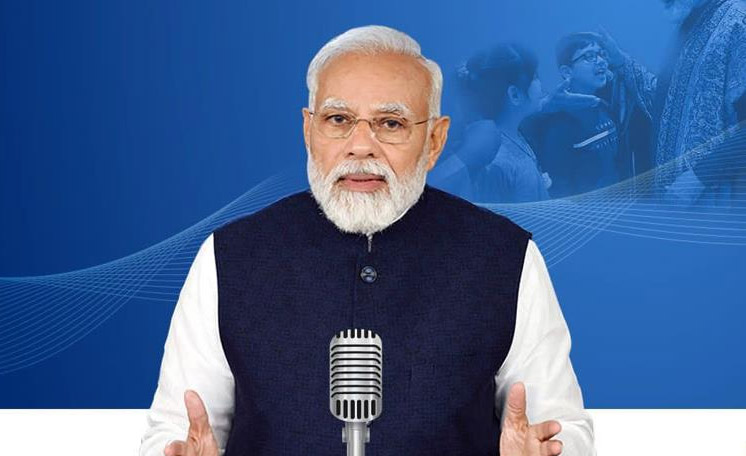NEW DELHI, Jan 12: The world is in a state of crisis and it is difficult to predict how long this state of instability will last, Prime Minister Narendra Modi said today as he stressed the need for the Global South to escape the cycle of dependency on systems and circumstances which are not of its making.
He also said that in the 21st Century, global growth will come from countries of the South.
In his opening remarks at the Voice of Global South virtual summit, Modi flagged concerns over rising prices of food, fuel and fertilisers, economic impact of the COVID-19 pandemic as well as natural disasters driven by climate change.
“We are meeting as a new year dawns and brings new hopes and new energy,” Modi said.
“We have turned the page on another difficult year that saw war, conflict, terrorism and geo-political tensions. Rising food, fertiliser and fuel prices, climate change-driven natural disasters and lasting economic impact of the COVID pandemic,” he said.
“It is clear that the world is in a state of crisis. It is difficult to predict how long this state of instability will last,” Modi added.
The Prime Minister said the need of the hour is to identify simple, scalable and sustainable solutions that can transform societies and economies.
“Despite the challenges the developing world faces, I remain optimistic that our time is coming. And our time is coming. The need of the hour is to identify simple, scalable and sustainable solutions that can transform our societies and economies. With such an approach, we shall overcome the difficult challenges,” he said.
“I am confident that together the Global South can produce new and creative ideas. These ideas can form the basis of our voice in the G20 and other forums. In India, we have a prayer…It means may noble thoughts come to us from all directions of the universe. This Voice of Global South Summit is a collective effort for gaining noble ideas for our collective futures,” Modi said.
The Prime Minister noted that the Global South has the largest stakes in the future of the world.
“We, the Global South, have the largest stakes in the future. Three-fourths of humanity lives in our countries. We should also have an equivalent voice.Hence, as the eight-decade-old model of global governance slowly changes, we should try to shape the emerging order,” he said.
The ‘Global South’ largely refers to countries in Asia, Africa and South America.
The Prime Minister said that as India begins its G20 Presidency this year, it is natural that our aim is to amplify the voice of the Global South.
In his closing remarks at the Summit, Modi said the interventions at the conference brought out the common challenges that are on the top of all our minds.
“These mainly concern the lack of resources for our development needs, and increasing instability both in the natural climate and the geopolitical climate. Despite this, it is also clear that we developing countries are full of positive energy, full of confidence,” he said.
Noting that in the 20th Century, the developed countries were the drivers of the global economy, Modi said today, most of these advanced economies are slowing down. “Clearly, in the 21st Century, global growth will come from countries of the South. I think that if we work together, we can set the global agenda,” he said.
“The Voice of the Global South needs to set its own tone. Together, we need to escape the cycle of dependency on systems and circumstances which are not of our making,” the Prime Minister said.
India is hosting the two-day summit to bring together countries of the Global South and provide them a common platform to share their common concerns relating to various global challenges, including food and energy security triggered by the Ukraine conflict.
The theme of the inaugural leaders’ session is “Voice of Global South – for Human-Centric Development” while the leaders’ concluding session will be on “Unity of Voice-Unity of Purpose”.
The summit envisages ten sessions out of which four sessions would be held on Thursday while six sessions would take place on Friday. Each session is expected to witness the participation of leaders and ministers from 10-20 countries. (PTI)


